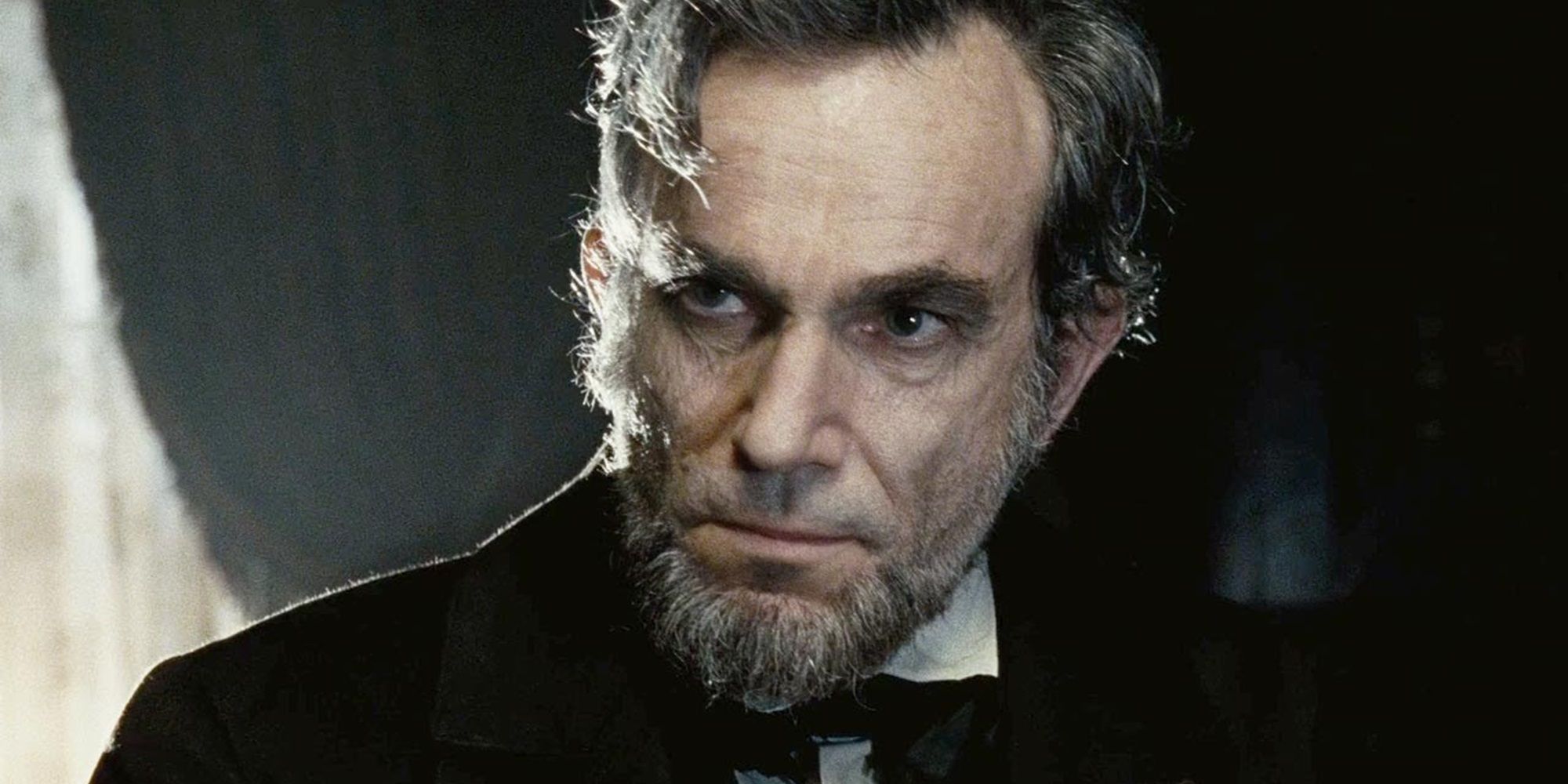
The Cast and Crew of Steven Spielberg Lincoln rose to the occasion with rigorous demands for historical accuracy from the lead actor, with plenty of praise at the end of the day to show for their hard work. Starring the legendary Daniel Day-Lewis in the title role, Lincoln depicts President Abraham Lincoln's efforts to pass the 13th Amendment in the final days of the US Civil War. Day-Lewis wasn't the only actor to be recognized for Lincolnwith Sally Field and Tommy Lee Jones also being nominated for Oscars for their performances.
It's no surprise that Day-Lewis would become one of the best actors to play a US president, or that Spielberg's historical epic has achieved such success, given the storied careers of both Hollywood icons. Famously, Spielberg Saving Private RyanThe D-Day invasion sequence is one of the most praised and historically accurate on-screen battles of all time. However, where Lincoln is concerned, Day-Lewis apparently took control of the production, which resulted in a textured, realistic environment which the audience can certainly feel.
Steven Spielberg set strict authenticity rules for filming 2012's Lincoln
At the request of his lead actor, Spielberg led a historically accurate and impressive set when filming Lincoln
Tim Blake Nelson, who plays New York representative Richard Schell in Lincolndetailed the experience of working on a historically accurate set to The Hollywood Reporterlargely by Day-Lewis' prerogative, but enforced by Spielberg. Day-Lewis is famous for his method acting, which involves staying in character at all timeseven when the cameras aren't recording. In case of Lincolnthis also meant that any modern items would be banned from the set. According to Nelson:
"So working with Daniel Day-Lewis [on Lincoln] was another extreme, and how he was able to commit not just himself, but the entire production to a work ethic and to aesthetic principles in terms of the process that just intensified, not just what he was doing, but what everyone around him was doing. around him were up too. Just the fact that in Lincoln no one was allowed to wear t-shirts with logos on them. There were never anachronisms on the set.
You couldn't have a paper coffee cup. It was necessary to have something made from materials that were available at the end of the 19th century. So no shorts. No sneakers. Steve [Spielberg] I wore a blazer every day to drive and a button-down shirt. No iPhones, did I mention that? It just took everything up a notch. And, of course, all the things everyone knows about him: that he stays in character, that he could only be called Lincoln. And that he managed it in a way that somehow didn't bother anyone – it certainly didn't bother me – and made the set a more disciplined place in a really good way. Which I think is evident in the film."
How Steven Spielberg's Lincoln Became an Acclaimed Hit
Lincoln walked away with a dozen Oscar nominations and two wins for his troubles
It is clear that the rules established for Lincoln described by Nelson contributed to its surprising success, creating another great historical epic to join the ranks of Steven Spielberg's best films. Lincoln it grossed $275 million at the box office on a budget of $65 million and still maintains a 90% score on Rotten Tomatoes. The film was also one of the biggest Oscar titles in 2013, with 12 nominations and two wins.
|
LincolnOscar nominations |
|
|---|---|
|
Category |
Nominee(s) |
|
Best Photo |
Steven Spielberg and Kathleen Kennedy |
|
Best Leading Actor (winner) |
Daniel Day-Lewis |
|
Best Director |
Steven Spielberg |
|
Best Supporting Actor |
Tommy Lee Jones |
|
Best Supporting Actress |
Field Sally |
|
Best Writing, Adapted Screenplay |
Tony Kushner |
|
Best Photography |
Janusz Kaminski |
|
Best Film Editing |
Michael Kahn |
|
Best costume |
Joana Johnston |
|
Best original soundtrack |
John Williams |
|
Better sound mixing |
Andy Nelson, Gary Rydstrom and Ron Judkins |
|
Best Production Design (winner) |
Rick Carter and Jim Erickson |
LincolnThe two wins - Best Leading Actor and Best Production Design - are the ones most tied to the set's precision rules. The demands of Day-Lewis' method acting proved difficult for some who worked with him, but Lincoln it was his third Oscar win out of a total of six nominations in his career. Meanwhile, the realism of the setting is tangible when each actor is immersed in the period. The type of dedication that was invested Lincoln It's rare but it tends to be worth it when the cast and crew commit to it.
Source: The Hollywood Reporter
